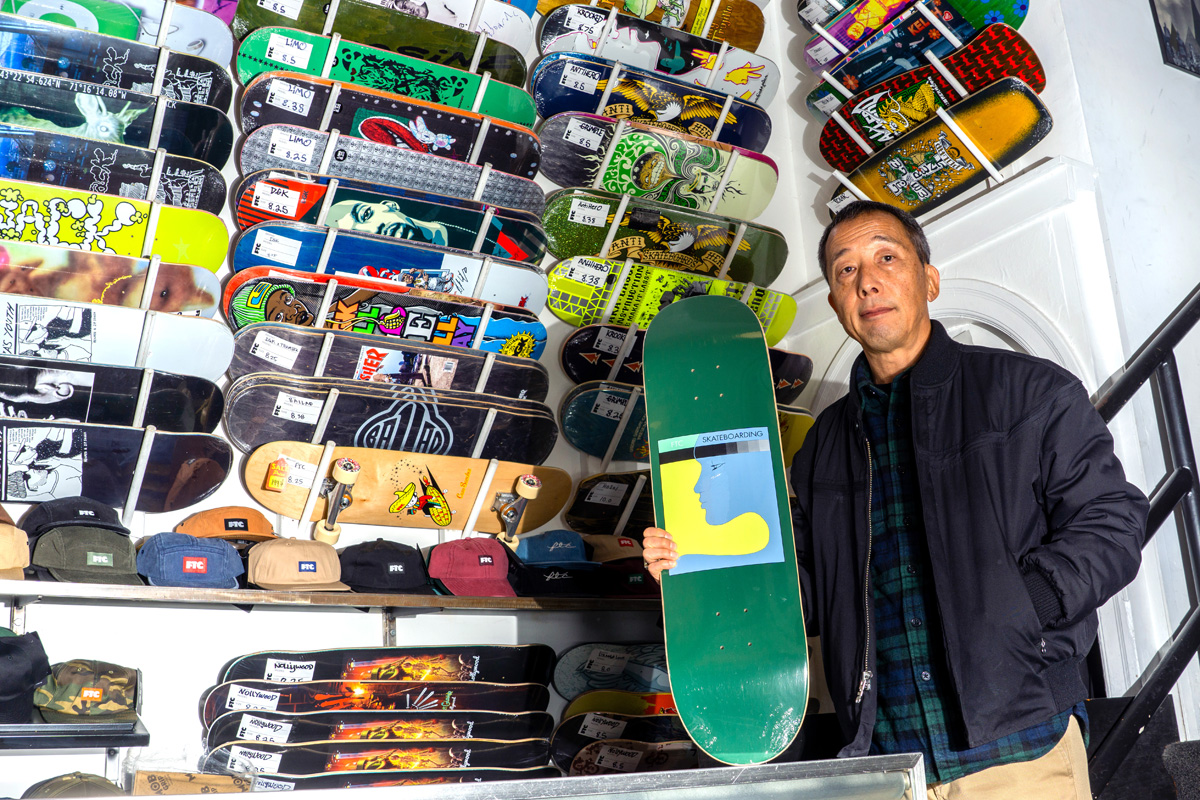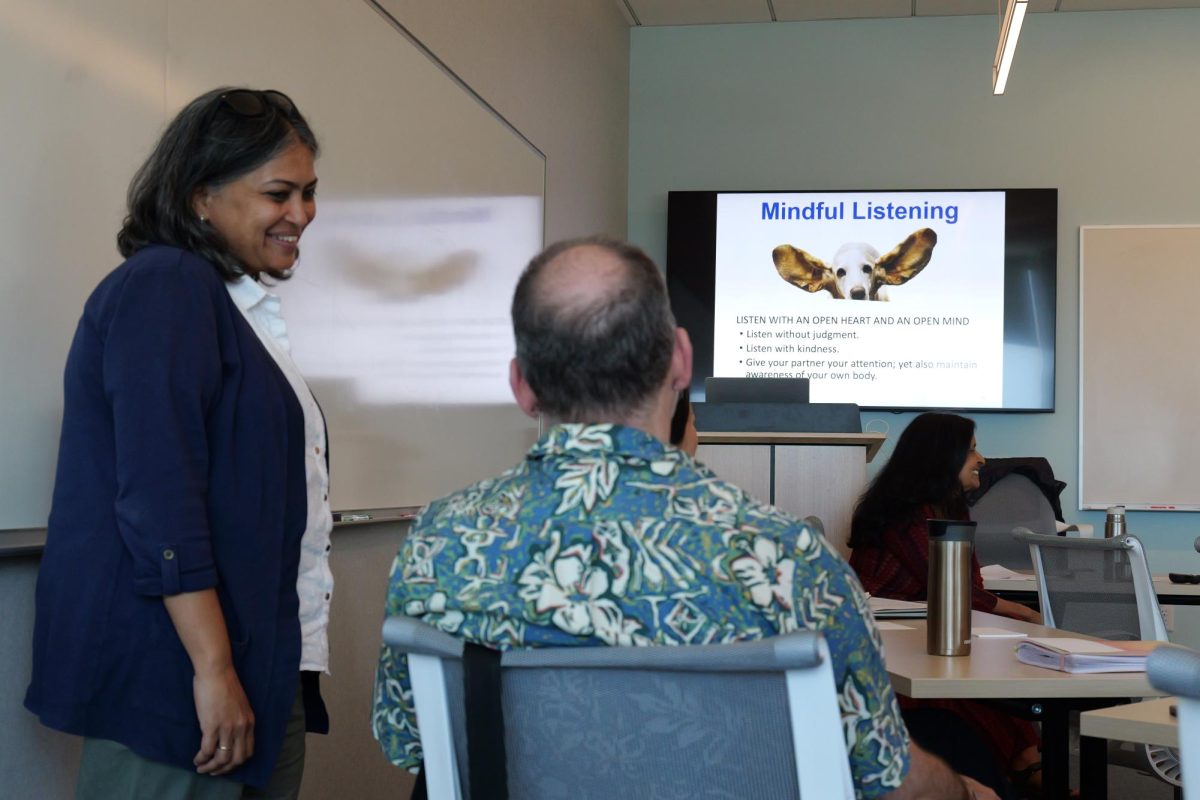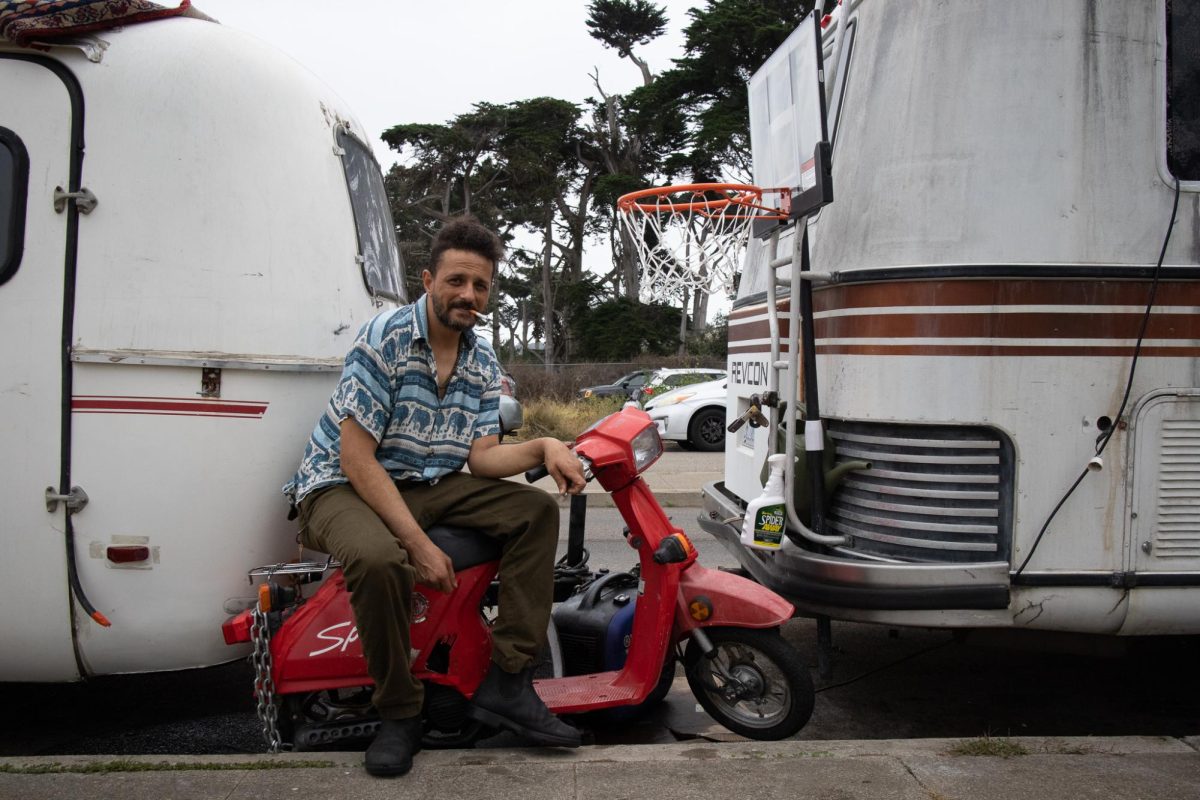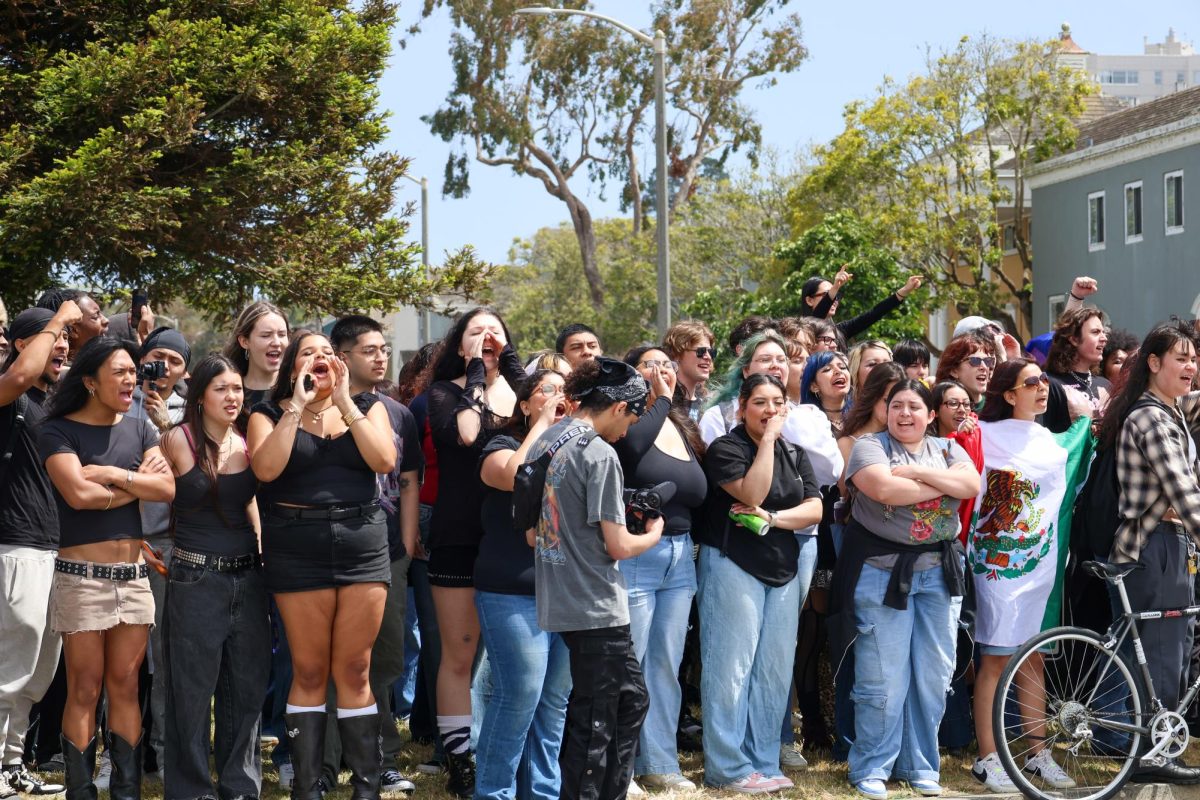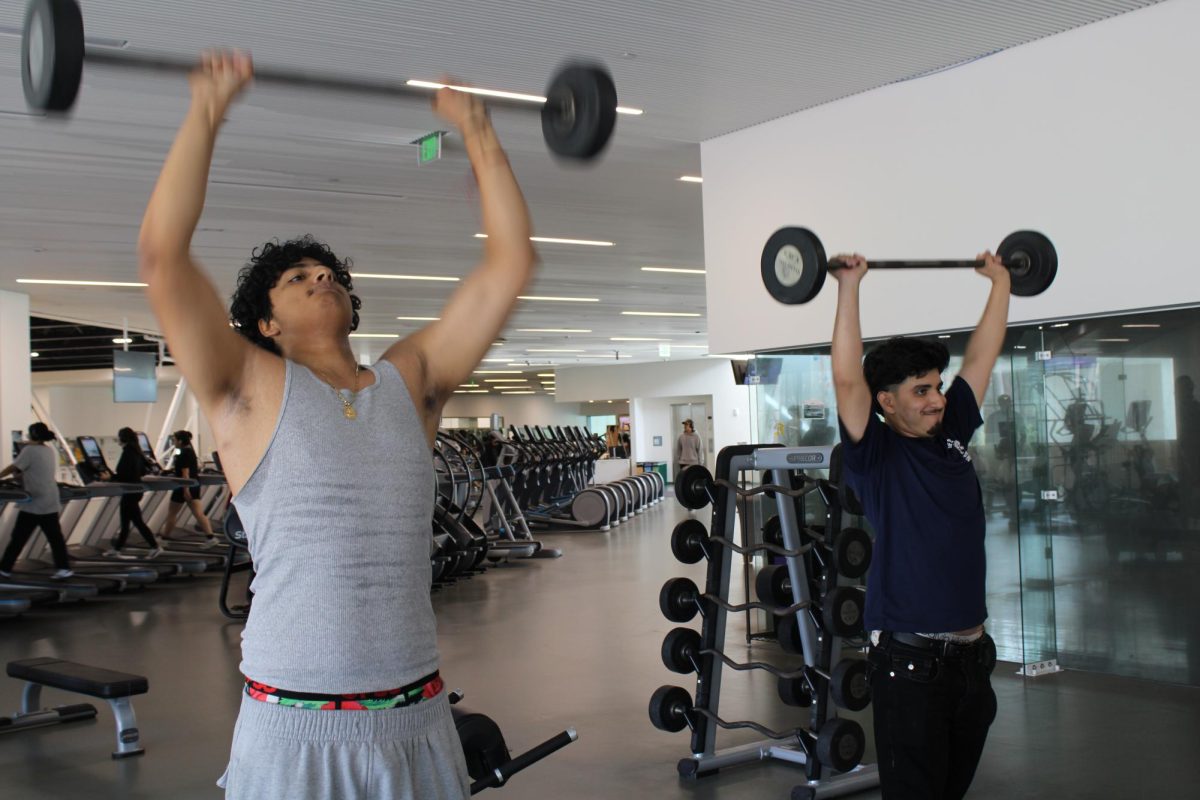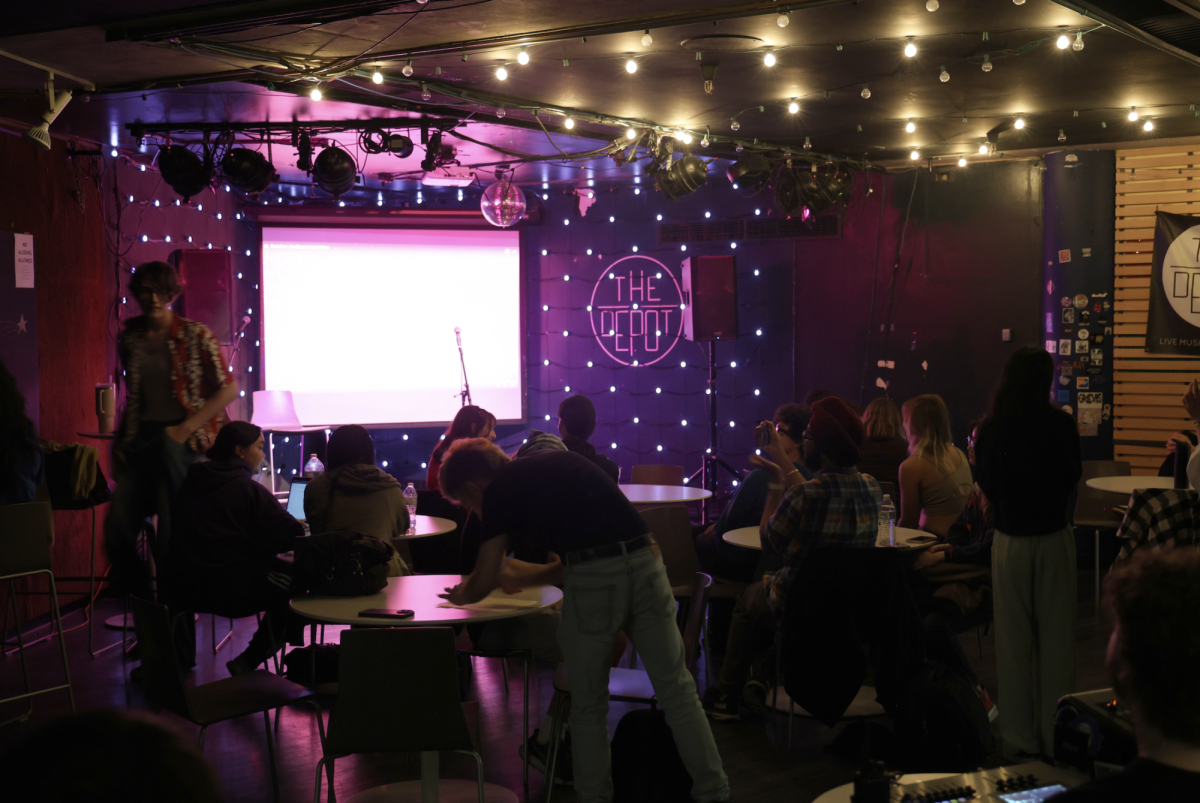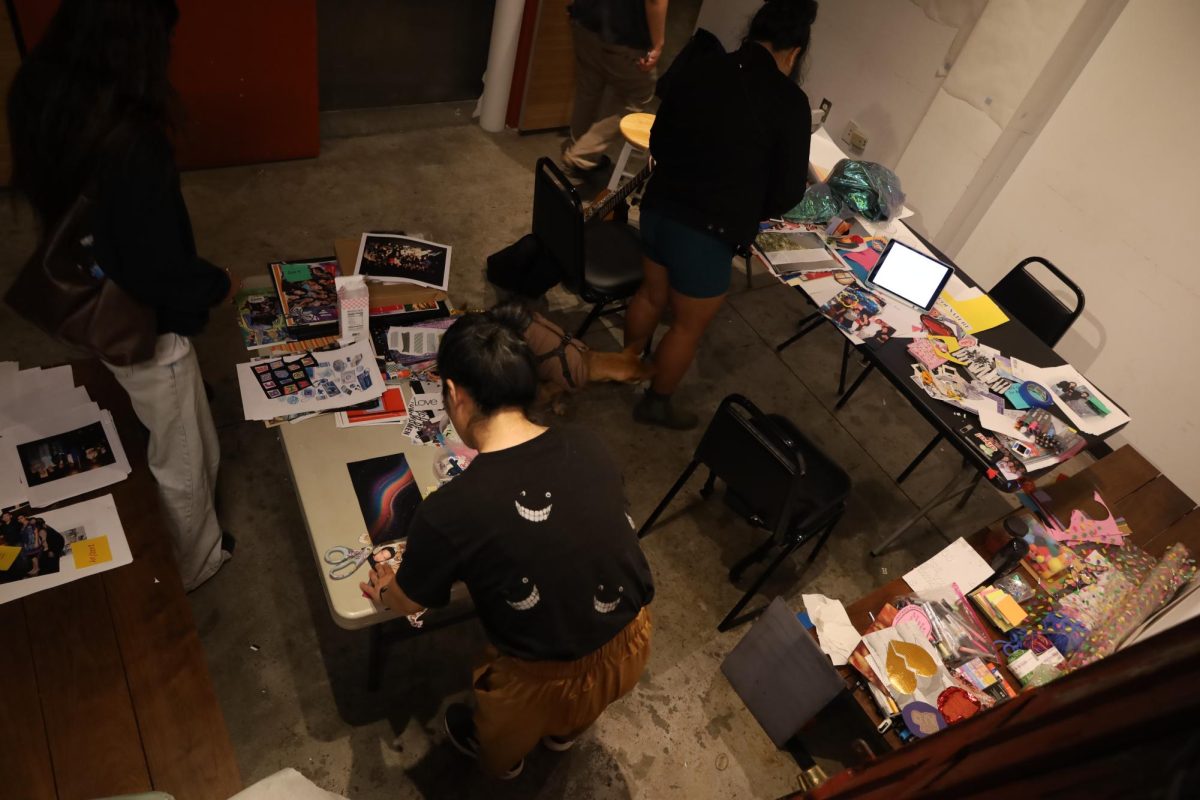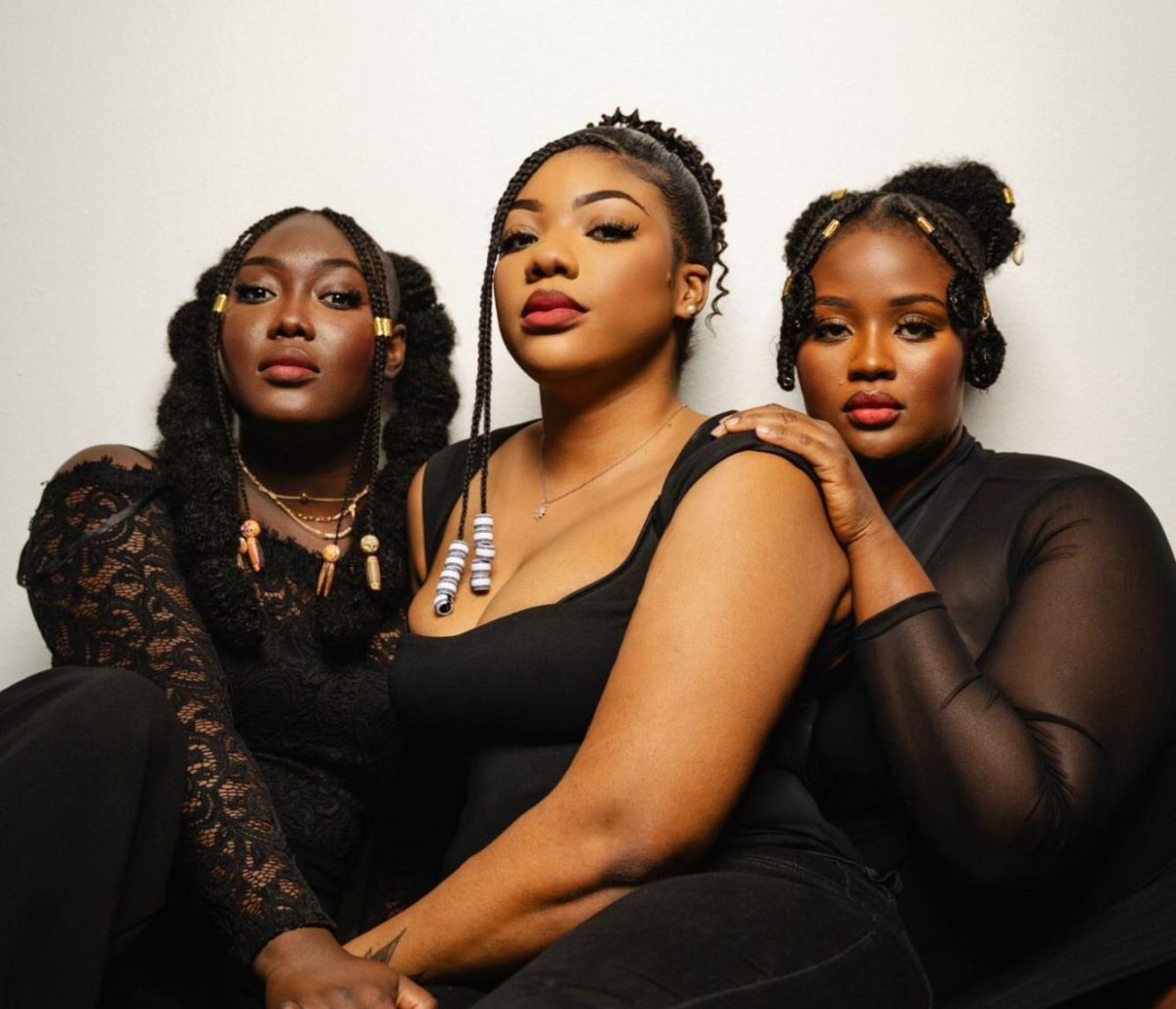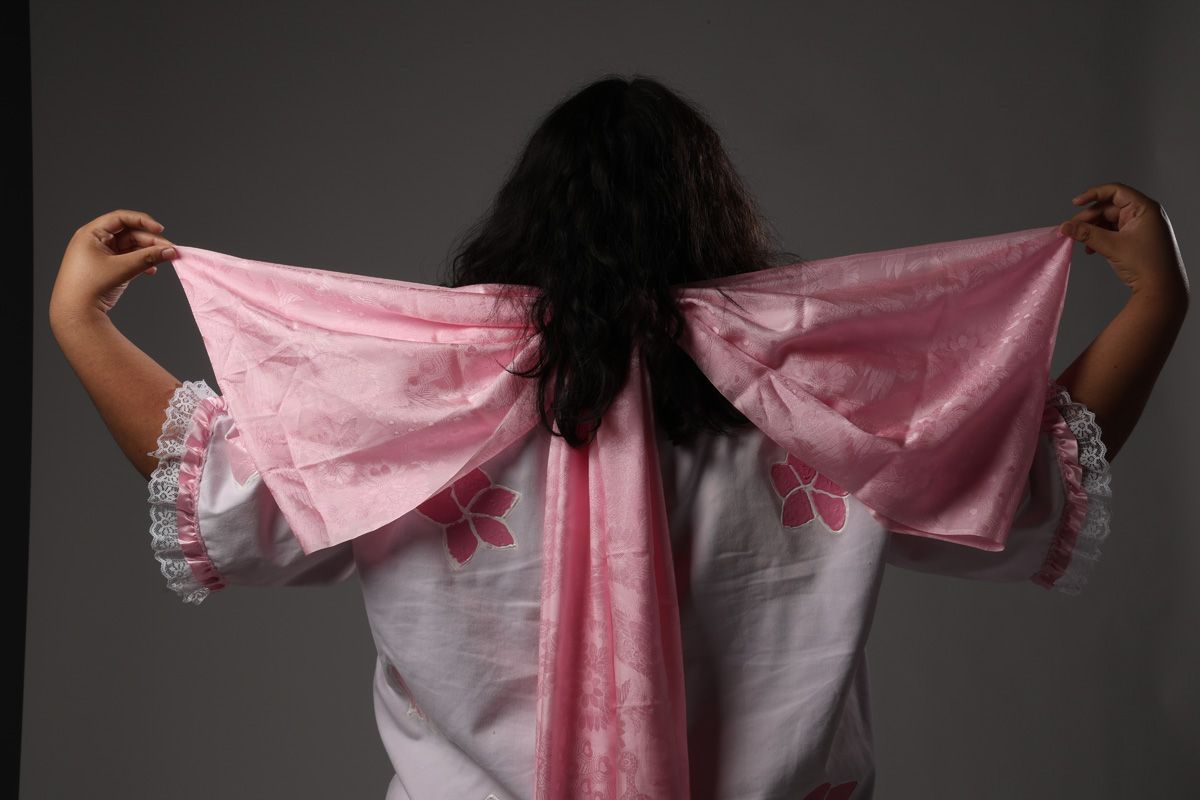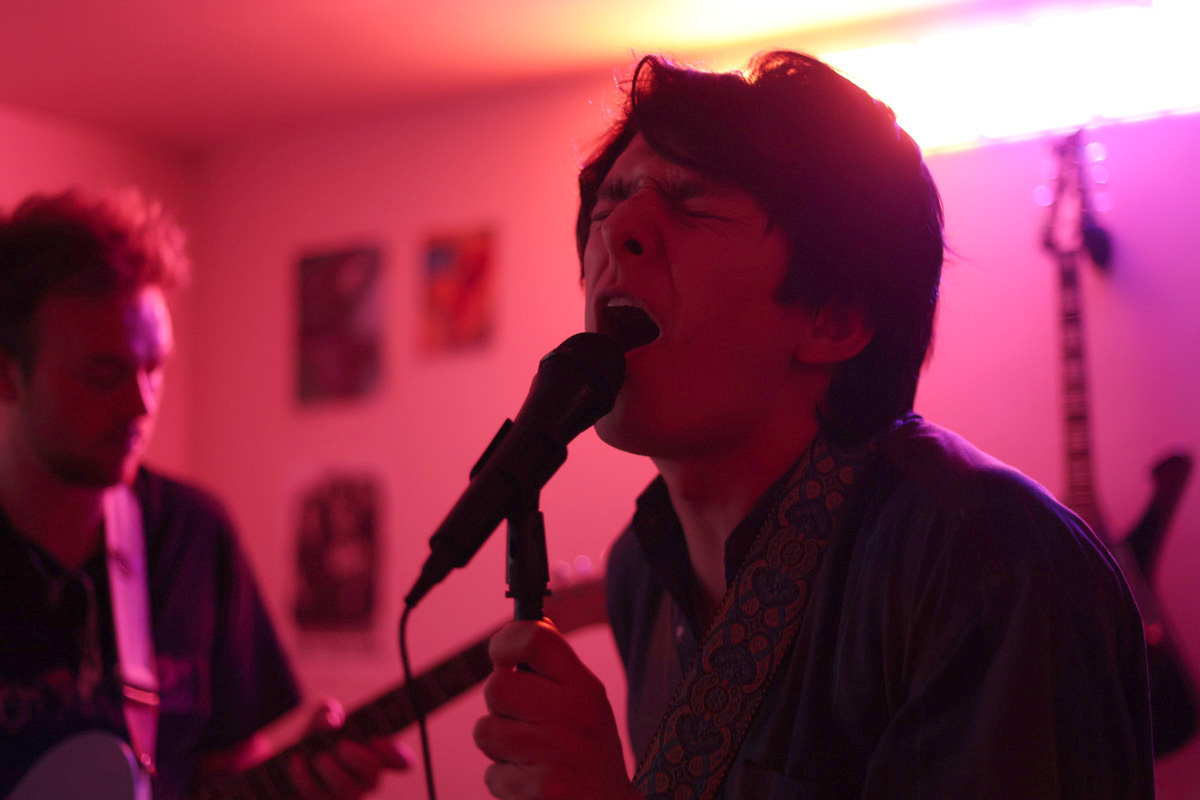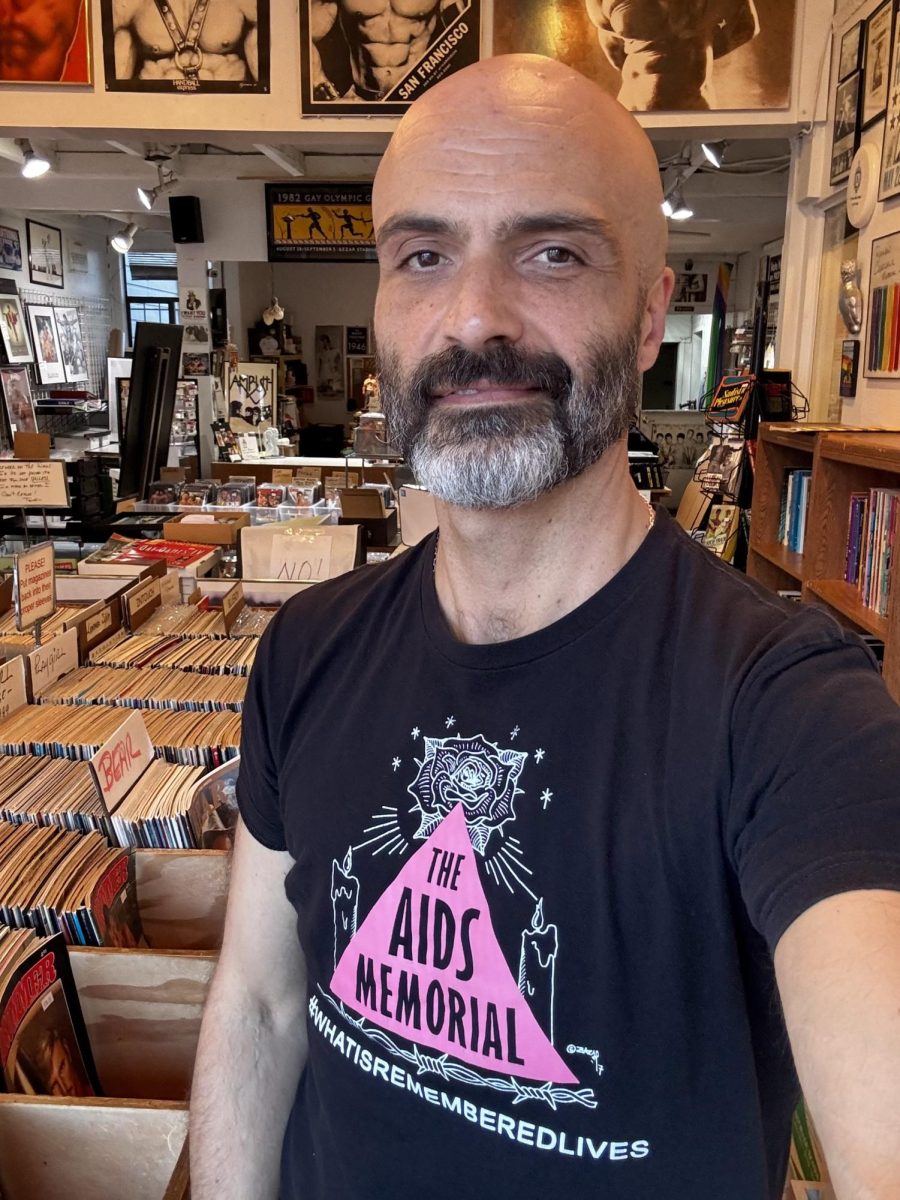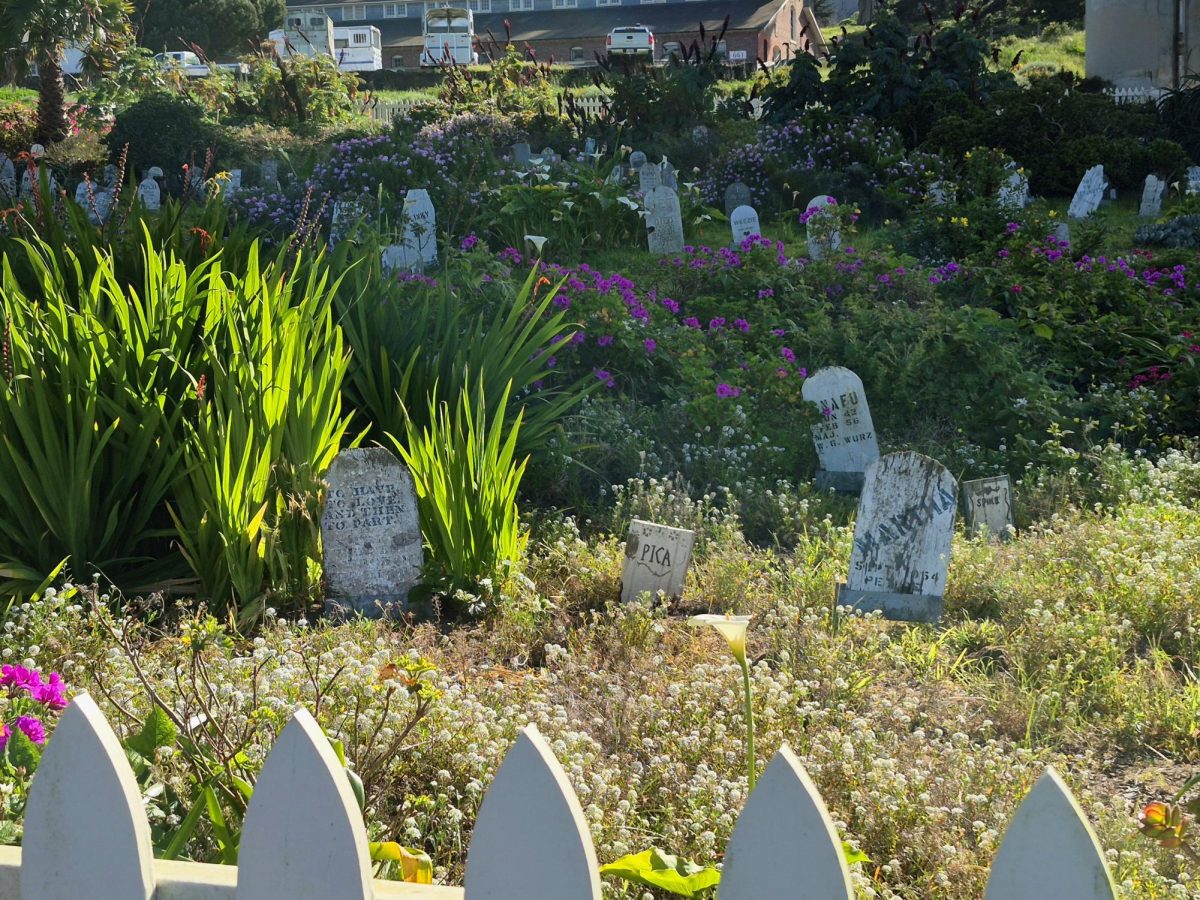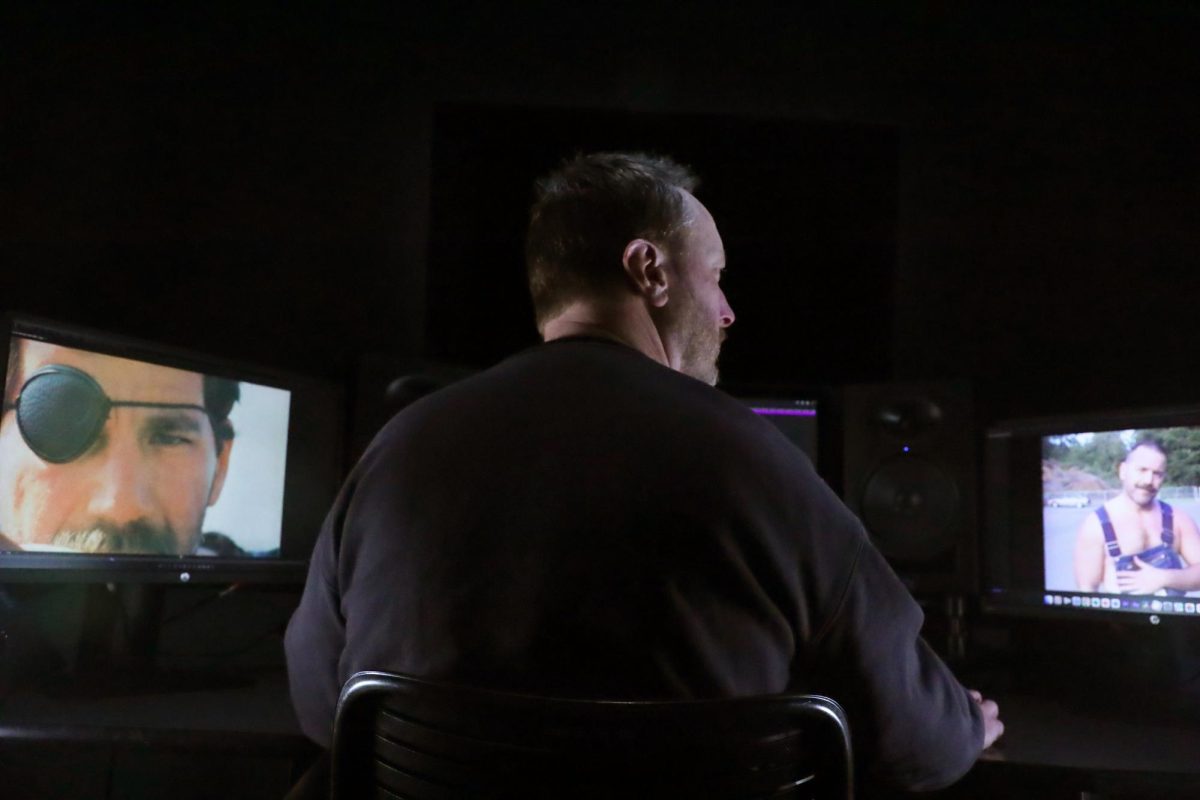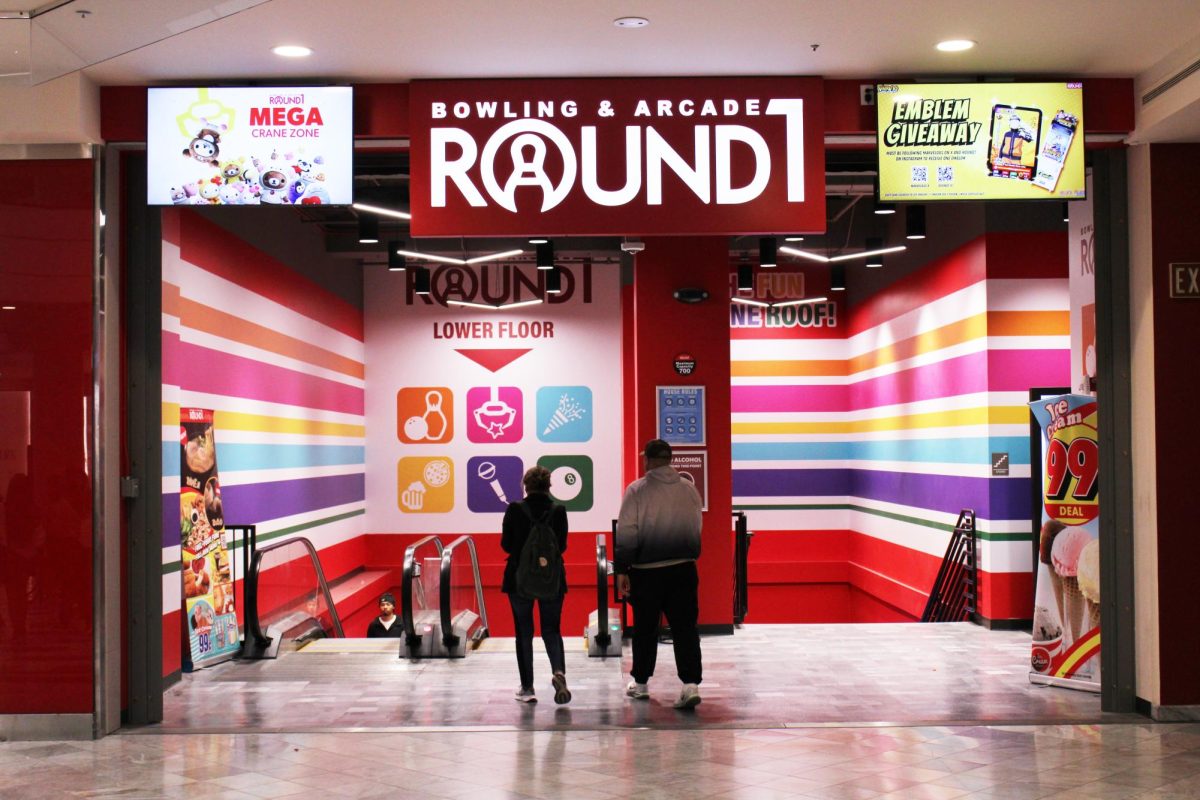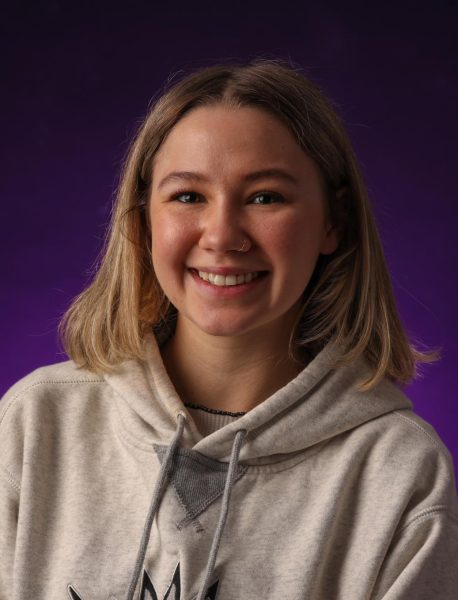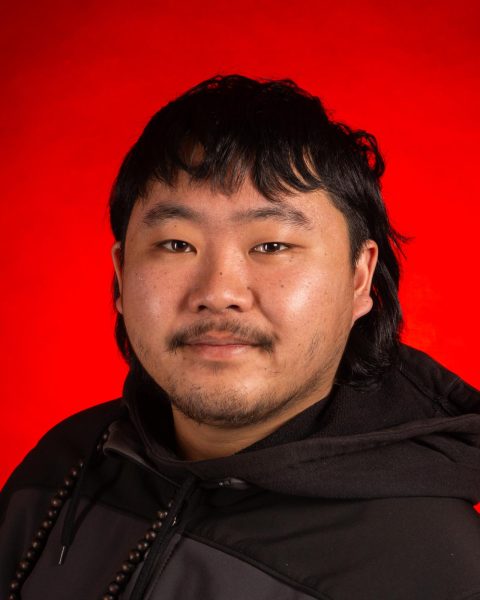A cold and rainy January night in San Francisco did not stop the crowd of people gathered outside laughing and talking on Haight Street. A sea of FTC hats, free Laughing Monk beer, and skateboards perched up, it’s not quite the ‘90s but close. Vibes like this couldn’t be anywhere else than FTC skate shop on 1632 Haight Street.
FTC (For the City) is the longest-running skate shop in San Francisco and has historically become the bridge between core skateboarding and the art world. According to members of the FTC community and an article by KQED, FTC is considered as the skateboard “mecca” for skateboarders around the world and has expanded locations to Japan and New York. Much of the skateboarding culture influenced today began in a ski and tennis shop on Bush Street in the 1960s.
Let’s Meet the Man behind FTC Skateshop
Kent Uyehara is a fourth-generation San Franciscan and was 10 years old when he began working in his parents’ ski and tennis shop. In the late 1960s, the shop was also called FTC, but it stood for the Free Trade Center, an importer of sporting goods from Japan and Europe that expanded into retail.
“I basically just learned everything just watching my family’s business,” said Uyehara. “Basically, my dad one day said, ‘If you want to buy things, you’re old enough; you need to start learning how to make your own money.’”
It wasn’t until Uyehara was introduced to his first skateboard, by his older brother of three years, that he found his passion.
“I really kind of just fell in love with it,” said Uyehara. “What I really loved was the [skate] magazines. Just absorbed the magazines all day, all night long. Back then, there were some other magazines; it wasn’t just Thrasher, but then over time, Thrasher continued their domination.”
While FTC is the longest skate shop to thrive in San Francisco, Uyehara also attributes success to past shops like Fogtown Skate Shop, which had two locations on Shrader Street and Waller Street, Skates on Haight, and Concrete Jungle on Waller Street. All these stores have closed throughout the years, but a piece surely remains and lives on within FTC.
Uyehara said Fogtown was short-lived and first to close, then came Concrete Jungle shortly after.
“Concrete Jungle would be the shop that had the most direct impact and effect on me. It was like the smallest, most corner shop that you could experience,” said Uyehara. “And it was great because I basically saw what real skateboarding was right in front of my face and saw all the people that were real skateboarders, and that’s what you want to emulate and what you want to do and be.”
While in the back scenes at his family’s business, watching the success, trial and errors of other skate shops in San Francisco, Uyehara was constantly in business school, forming an understanding of how to run a business, consciously or not.
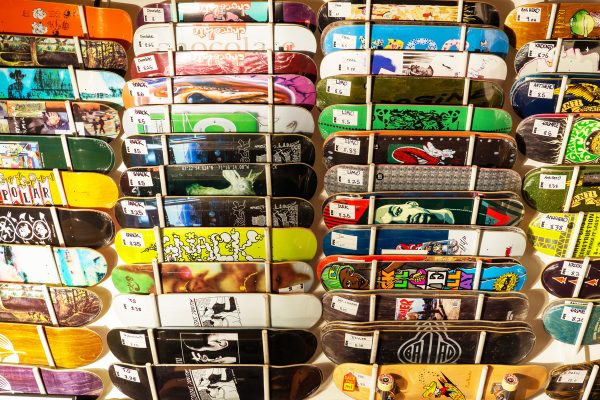
At 15 years old, Uyehara began making skateboards for friends in his family’s shop. After eventually making enough skateboards for his father to notice, Uyehara’s dad asked if they should just make a skateboarding section. This was when FTC officially grew from being more than a few boards on the wall.
FTC Transitions from Importer Store to Skateshop
When FTC skate shop truly began can be debated amongst community members, but to the creator himself, it always dates back to the 1980s. According to Uyehara, he started selling skateboards casually in the family shop on Bush Street in 1984, just to fellow skater friends, but two years later in 1986 started selling boards professionally even at a young age.
Years later, Uyehara would continue to make and build skateboards for friends. Over time, the hobby quickly grew into a part of the business when Uyehara’s father suggested importing supplies for the skateboards to the store and adding an official skate section with boards on the wall.
Uyehara’s College Years
Skateboards continued to be built and provided by the Federal Trade Center. While Uyehara’s parents were happy to see their kids grow a business, retail with skateboards continued to grow seriously. With Uyehara in Southern California finishing at UCLA, Uyehara organized friends to run the skate section of the store and help his parents, many of whom were students at SF State, so it was convenient and offered a way for them to work.
“It was a timing thing,” said Uyehara.“Basically, in the early ‘90s, when I was getting to my own, graduated from college, trying to figure out like whether I was gonna continue doing FTC stuff or quit FTC and go out and get like a real job, or grad school, all that stuff.”
During this time ––the late ‘90s––skateboarding at the Embarcadero Center started blowing up and San Francisco began receiving a lot of attention. Snowboarding also gained traction and the Federal Trade Center was a pioneer in being one of the few places selling snowboards.
“Back when we did it, like when we had a snowboard shop, snowboards weren’t allowed on the mountain,” said Uyehara. “You couldn’t snowboard on the mountain; you had to basically take your board and drive to the side of the highway and hike. All the skiers were like, ‘Fuck snowboarders.’”
Before the popularity of these now well-known sports, skateboarding and snowboarding were amongst the hobbies of people whose parents deemed them “bad kids.” Most skaters were troubled youth or considered outcasts, with baggy jeans instead of khakis, and Uyehara embraced that.
Beginning by just folding socks in his family’s store, Uyehara has further added to San Francisco culture, history, and cultivated skateboarding culture to be bigger than a sport or hobby, but a community in San Francisco that emphasizes the value of human connections, passion, and hill-bombing.
With FTC’s 40th anniversary approaching next year, the company has built itself into a brand with popular merchandise, its own line of skateboards, volumes of skate films and art curated for and from FTC community members sold or unsold. Famous skaters like Chico Brenes and Mike Carroll were original members of FTC and legends in the skateboard community.
Andrew “Ando” Caulfield was in eighth grade, attending summer school at Sacred Heart in 1993, just getting into skating, when he found the first FTC store (Federal Trade Center at the time) on Bush Street.
“I don’t think I really understood, like, what it was,” said Caulfield. “To me, it was just like an object that you played with, but I didn’t really understand the gravity, the lifestyle around it, culture around it. And then I found this skate shop called FTC, and I would hang out there every day and I’d read magazines. This was before the internet, so we would watch VHS tapes of people skating, and that’s how I learned about skateboard culture.”
Caulfield said he was never as good as the other skaters, but as a way to go on the skate trips, he realized he could be the camera guy, and that opened a whole new world. Caulfield is now a professional photographer for Drew Altizer Photography and an artist with a resume that includes photos from political figures, brands, but most importantly, skateboarding. More than 30 years later, Caulfield attributes his success to Uyehara through giving Caulfield his first job, providing a sanctuary after school to stay in line and out of trouble, and ultimately creating the family that FTC is made up of today.
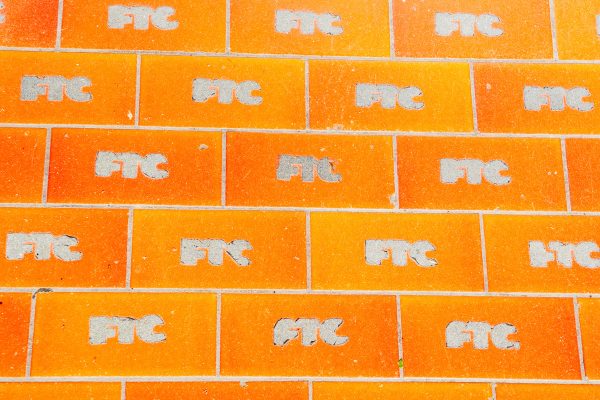
FTC is Family, and Family Never Gets Left Behind
Many other FTC members share similar origin stories to how their relationship formed with FTC and Uyehara. Almost all those kids visiting after school are still loyal to FTC to this day and have grown with the company. FTC is really just one big family.
The art show hosted on Friday is one of many events Uyehara hopes to continue throwing at the store to give back to the FTC community and San Francisco. For 39 years, FTC has grown to what it is by staying loyal to its name and loyal to its brand, For the City from the city.
Leo Petroni was born and raised in San Francisco and a longtime friend of FTC artists Cash and Melo, whose photos and art were included in the show. Petroni made sure to attend the show and support FTC, as he feels FTC has always supported the city and natives like himself.
“I bought my first skateboard at FTC on Bush when they were there,” said Petroni. “You know what’s so great is that they’re still in the city, and they’re still going and they’re still about the community, that’s what it’s about. I think it’s support of the community, it’s about the people, they have an incredible product but it’s about the people. Don’t ever forget about that.”
Sean Silk is an employee for Uyehara at FTC who helps manage the store and products. Before working at FTC and after graduating from SF State, Silk was a swim instructor at a pool in the Presidio for eight years. Uyehara jokes that he still feels guilty for pulling Silk away from instructing and turning people into skateboarders.
“He was a swim instructor, also working at FTC, and then overtime he was like ‘Yeah, I don’t want to instruct kids anymore’,” said Uyehara. “In my mind, I was like ‘No, no, no, no, that’s a good profession. Don’t get stuck in the skateboard shop. Go take care of kids, make parents happy.’”
Silk was already into skateboarding as a passion and familiar with people in the scene. Silk was getting tired of swimming instruction, and at the same time, a position was about to open at FTC, so his friend suggested Silk talk to Uyehara since Silk was already so involved in the skate community.
One conversation and nine years later, Silk is still working at the store with the same excitement.
“I love it. It’s good because I’m able to separate, like, my artistic life, my skateboarding life and my work,” said Silk. “And it does feed into each other, but also, it’s nice to have my time here and see my friends. I’m pretty good at separating my job from my life, but it’s also something I’m passionate about, so I don’t get burnt out.”
Despite FTC being made up of largely friends and family, the lines between business and pleasure are never blurred. Silk says himself and others are good at understanding and recognizing when appropriate to remind each other of discipline.
“No one wants to step on anyone’s toes, because, I mean again, there’s so much history and so much respect for the shop, and also, there isn’t that many shops,” said Silk. “So it’s like, you burn your bridges at Deluxe [DLX], or you burn your bridges here, where are you gonna go, you know.”
DLX (Deluxe) Skateshop is located on 2330 Mission Street in San Francisco that also sells skate items including their own brand of boards, apparel and zines among other brands with skate lines like Nike, Adidas and more.
With FTC around for as long as it has and its contribution to San Francisco and skate culture, there’s a great amount of respect surrounding FTC and that respect directly impacts business in the store in a positive way.
“So, for the most part, no one is stealing, no one is acting out. Very few times, we kind of have to really regulate on people,” said Silk. “So that’s really nice for us because we have that bigger respect, so it makes my job a little bit easier.”
FTC Connects Art and Skateboarding
This earned respect surrounding FTC has also impacted the outside view on skating and the way skater culture is perceived. Uyehara and FTC pride themselves on embracing kids with a troubled childhood or background and used skating as a tool to better that demographic of skaters instead of veering them away. This has allowed skating not to just be an outlet, but a vehicle to a better life for some. FTC helped enable skating to be more than a hobby but a tangible career that encourages those interested in joining to better themselves first and improve themselves in the same way they hope to improve their skating. Hope is tangible in FTC.
Living proof of that success in members of FTC also exists in artist and FTC friend Alán González. González originally began his artistry 20 years ago, growing his creative work designing for FTC to now being the senior apparel designer for Thrasher Magazine for the past 9 years. González attributes his relationship with FTC to how he ended up designing for Thrasher.
“I was always in apparel; even when I wasn’t designing for skate brands, I was always making my own stuff,” said González. “I got lucky since I’ve been here for so many years, skating with mutual people, and everyone knew what I did. I think my name just got passed around.”
González also explained that the relationship between art and skating is so natural because of the way skaters view this world with a board in hand.
“I mean, just in general, I think skateboarders see things completely different. So it’s like, I’m gonna look at a curb and just not think about it, versus like, I’m gonna see something completely different,” said González. “I think I’ve always been creative, and I grew up with a bunch of skaters who are all creative, yeah, it’s just fun. I think we all play off each other’s ideas and kind of just, like, develop.”
González was proud to showcase a new style of art he has been trying out with a square brick with a side profile of the singer Sade painted on the front. González is always looking for more ways to creatively expand his art and enjoys the challenge of trying to precisely paint on a surface with so many cracks and imperfections in the surface.
Anyone who knows, or is lucky enough, to be around the FTC community knows FTC is not a business for the money; but this community is wealthy in love, loyalty, passion and friendship.
“The people that are truly entrenched into it, the core of skateboarding, will always stay,” said Uyehara. “You can’t buy that, you can’t buy the friendships, you can’t buy the comradery, the loyalty, the community, that’s all stuff that comes with what you do.”
“Seeing all these people that are attached and that have some kind of affiliation to what we do, you can’t buy that basically, all the friendships we’ve made,” said Uyehara. “We’re so well connected in San Francisco. I’m just happy people appreciate what we started.”



